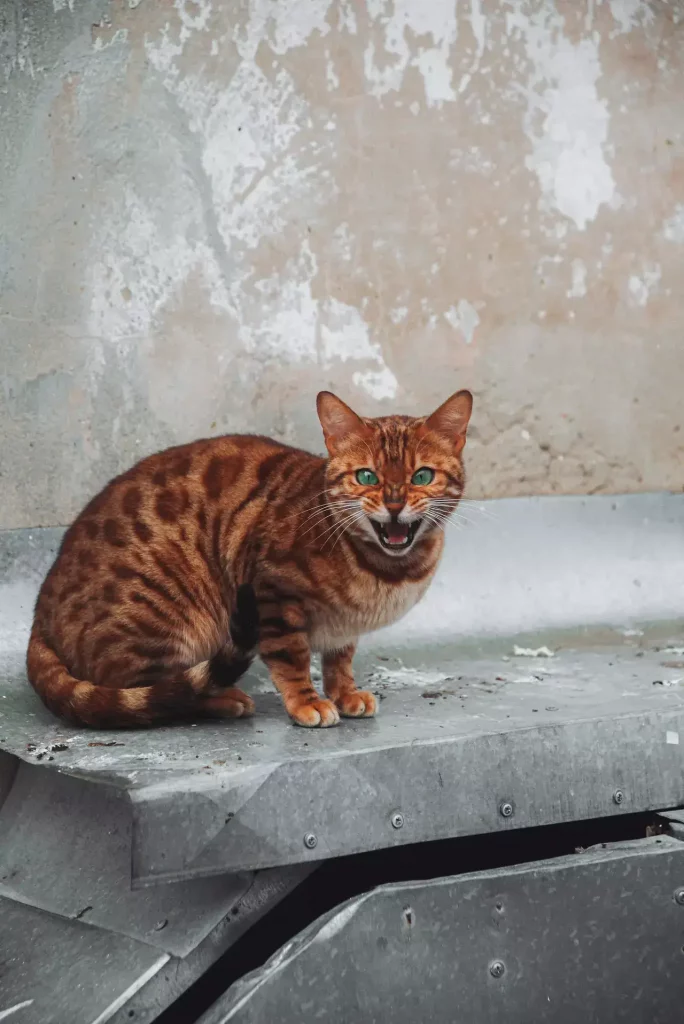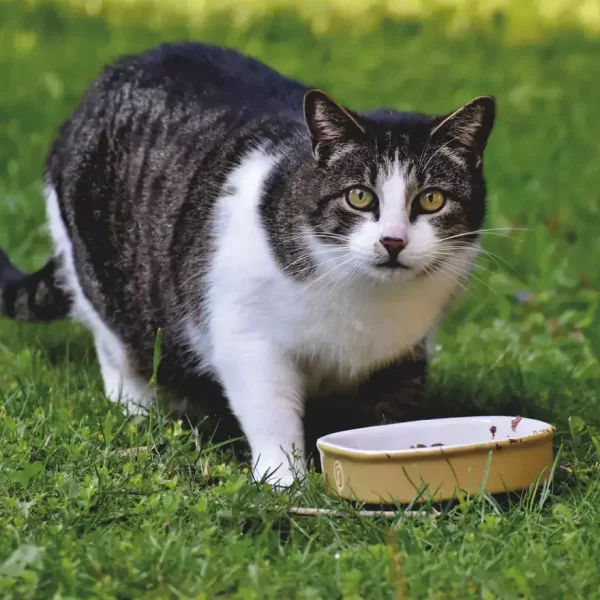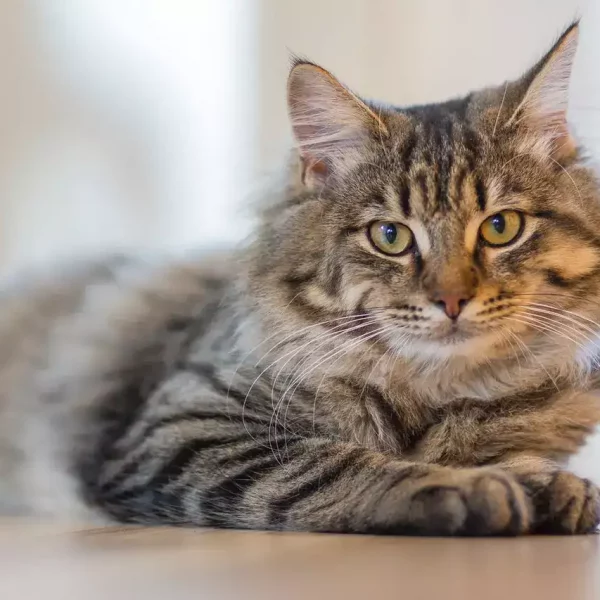Do you have a cat who just won’t stop hissing or meowing? Perhaps you’re an annoyed neighbor who has simply had enough of a local cat constantly hissing and keeping you awake at night.
Either way, I am sure the thought has crossed your mind whether it’s possible for a cat to get a sore throat from hissing or damage their vocal cords. If cats do get sore throats, it could mean you will get some respite from the noise at some point.
This very same question came up last week in a social media conversation, so I decided to investigate whether cats can get sore throats, and if hissing too much is a factor.
Do cats get sore throats from hissing? Cats can get sore throats from hissing too much. Excessive hissing over a prolonged period of time can result in damage to the cat’s vocal cords, resulting in laryngitis where the larynx inflames and becomes sore, plus a hoarse hiss.
So, there you have it; cats can damage their vocal cords by hissing excessively.
Why is my cats hiss so hoarse?
The reason a cat’s hiss is so hoarse can be due to excessive hissing. It could alternatively be down to a wide range of reasons including distemper, tonsillitis, irritations, and more sore throat reasons.
You can see them all listed below.
Can cats get sore throats for other reasons?
But, if you do believe that your cat does have sore throat from hissing too much, don’t assume that’s why they are in discomfort. Cats can have sore throats for a wide range of reasons, some more serious than others.
For example, a cat can get a sore throat due to:
- Hissing or meowing too much: as previously discussed, a cat that hisses too much can hurt their throat, making it red and sore.
- Feline distemper: this bacterial respiratory infection will often be accompanied with pharyngitis, where the walls of the cat’s throat become inflamed.
- Feline tonsillitis: Symptoms of tonsillitis in cats will include red and swollen tonsils, which you should see at the back of the throat.
- Cut, abrasion, or irritation: anything that irritates your cat’s vocal cords or throat can lead to soreness. This can include hairs, dust, smoke, or even a small graze.
- Foreign object lodged
- Herpes virus: the herpes virus can replicate in the mucosa of the oral cavity and throat and then enters the cat’s bloodstream to make them sick.
- Laryngitis: can be caused by an upper respiratory tract infection or by something in the throat that irritates, including the cat hissing too much.
- Parvovirus: this disease starts when the virus by attacks the tonsils or lymph nodes of the cat’s throat, making it sore. It’s one of the first symptoms of feline parvo.
- Strep throat: similar to tonsillitis, cats can also suffer with strep throat like us humans do if the bacteria gets into their system.
- Throat cancer: this is the most serious possibility for a cat’s sore throat, with life expectancy ranging from 2 to 12 months upon diagnosis and treatment.
It’s important that you talk with your vet to rule out a more serious reason for your cat’s sore throat. It might not be just down to excessive hissing and damaged vocal cords.

You might actually not realize your cat has a sore throat, whether through excessive hissing or another reason. There are some symptoms and signs you can look for though, listed below.
Cat sore throat symptoms
If you are now wondered how you can tell if your cat has a sore throat or damaged vocal cords, then there are some classic symptoms to look out for.
- Swallowing motions.
- Hoarse sounding hiss.
- Coughing or hacking up.
- Gagging.
- Fever-like symptoms.
- Licking of lips.
- Excessive drooling.
- Swollen and red tonsils.
- Crying when they yawn or open mouth.
- Not eating and / or not drinking.
- Appearing to be lethargic, tired, and listless.
To find out more about these signs, check out this post dedicated to cat sore throat symptoms.
Can cats get sore throats from humans?
I had to include this too, as I found it so interesting and you might too. It is possible for cats to get sore throats from humans. Cats can become infected with the human strep throat bacteria, which then gives them an infection.
Do cats get tired of hissing?
If the cat you want to stop hissing happens to develop a sore throat because of the incessant noise, then you should hopefully get some respite. Hissing will hurt the cat, so he or she will need to stop it until the throat recovers.
But, what if instead, the cat keeps hissing and never happens to get a sore throat? Will it get tired of hissing? Here’s what I found out online:
- Cats don’t necessarily get tired out from hissing, but instead will start to hiss less.
- Most cats of average medium size will stop hissing after 60 to 90 minutes.
- Some cats will continue to hiss even if they are tired and hoarse if they are under psychological stress.
Conclusion
To conclude, it’s certainly possible that a cat can get a sore throat from hissing too much. Whether that means the cat will stop or not, is a completely different matter!
Cats will continue to hiss for hours if they are stressed, in pain, or have separation anxiety; it’s not like they get bored of it, just possibly a little bit tired.




Leave a Comment